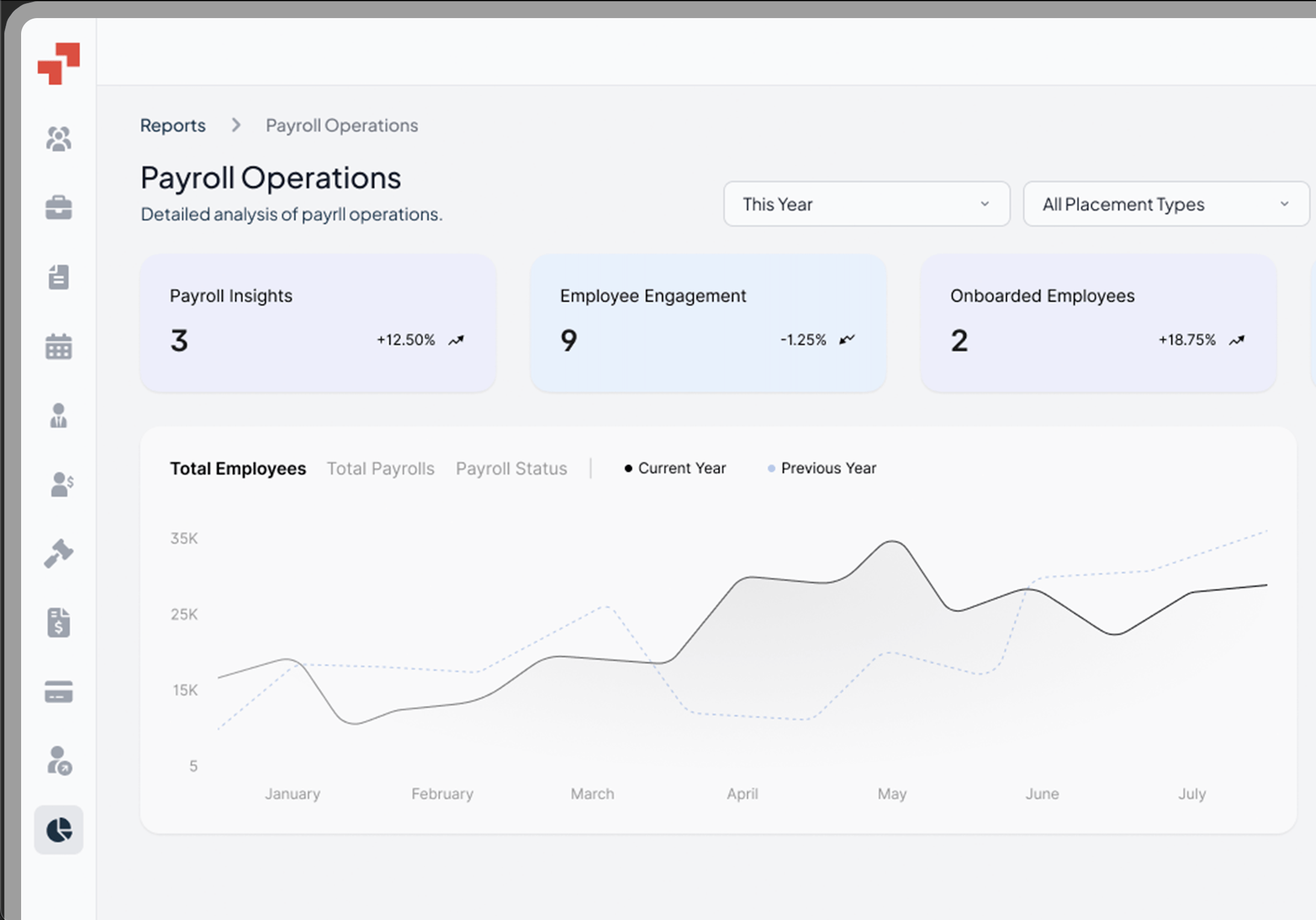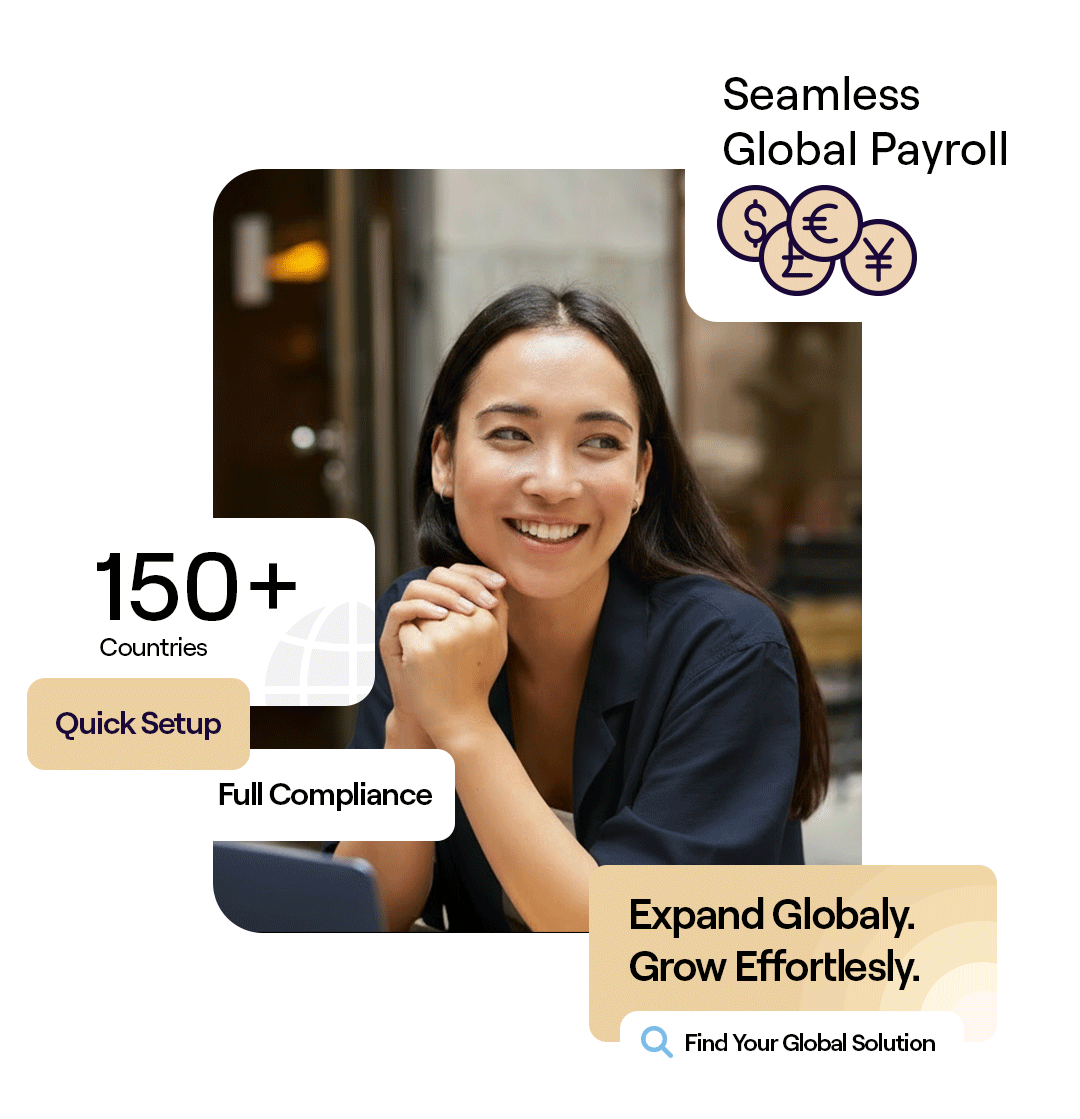Expatriate Employee
In today’s interconnected world, global expansion isn’t just about new markets — it’s about people. Companies increasingly rely on expatriate employees, who are valuable assets to their organizations, to bridge knowledge gaps, transfer culture, and drive international growth. Deploying expatriate employees is often a key strategy for business expansion into new international markets.
Multinational corporations, in particular, depend on expatriate employees to maintain organizational consistency and manage overseas operations. But managing these global professionals requires deep understanding of compliance, compensation, and local labor laws. Let’s explore what an expatriate employee is, how they fit into global business strategies, and what organizations should know before deploying them.
Table of Contents
- What is co-employment?
- What are co-employment laws?
- Why is co-employment a risk?
- What are co-employment rules
- Co-employment do’s and don’ts
- How does co-employment work?
- What is the difference between co-employment and joint employment?
- Co-employment vs PEO
- Co-employment vs employee leasing
- Is co-op considered a full-time employee?
- Is it illegal to work for two jobs in the same industry?
- Co-employment examples
- Practical Case Study Example
- PamGro and Co-employment: Your Global Partner
What is an Expatriate Employee?
An expatriate employee is an individual sent by their employer to work in a foreign country for a specific period, while remaining on the payroll of their home organisation.
These employees, often called “expats” or expat employees, play a vital role in extending company operations, transferring knowledge, and establishing overseas business functions. Expat employees are often sent on foreign assignments to manage operations in foreign countries and foreign subsidiaries.
Typically, expatriates retain strong ties to their home country — including salary structures, tax responsibilities, and benefits — while adapting to their host country’s culture and regulations. Businesses use expatriate assignments strategically to maintain global control, ensure alignment across international subsidiaries and foreign subsidiaries, and support expansion into foreign markets.
Who is Considered an Expatriate?
An expatriate is anyone living and working outside their native country, usually on a company-sponsored assignment. This includes executives, engineers, managers, and specialists deployed to establish or support global branches. Expatriates are often skilled professionals selected for their specialized skills, which are essential for knowledge transfer and addressing talent shortages in the host country.
Unlike immigrants or permanent residents, expatriates maintain an intent to return home once their assignment ends. They often enjoy a structured expatriate compensation package, including housing allowances, relocation support, relocation assistance, and cost-of-living adjustments.
What Qualifies as an Expatriate?
To qualify as an expatriate employee, the individual must:
- Be employed by an organization headquartered in another country.
- Be assigned abroad temporarily (usually one to five years).
- Note: Typical expatriate assignments last one to five years, while short term assignments generally range from a few months up to one year and are often project-based or for urgent business needs.
- Continue receiving benefits from the home company.
- Have defined repatriation terms in their employment contract.
A tailored training program is often provided to prepare employees for international assignments, ensuring they are equipped with the necessary skills and knowledge for a successful deployment.
What’s the Average Expatriate Salary?
Expatriate salaries vary based on role, destination country, and cost of living. According to Mercer’s 2024 Expatriate Management Survey, global expat packages can range from USD 80,000 to over USD 300,000 annually, with additional allowances for housing, schooling, and travel.
Employers often offer hardship allowances for challenging locations, recognizing the need for expatriate professionals to adapt to diverse environments, and tax equalization to ensure fairness between home and host country obligations. A well-structured expatriate compensation package helps attract and retain top talent while maintaining equity among global teams.
What is the Difference Between Expats and Expatriates?
While the terms are used interchangeably, “expat” is the informal abbreviation of “expatriate.” Both refer to professionals temporarily living and working abroad under employment contracts. In global mobility and international business expansion, the term “expat employee” or “expat employees” specifically refers to individuals sent by their companies to work in foreign markets, often for extended periods, with deep cultural integration and significant managerial responsibilities.
Expat employees are distinct from international business travelers, who typically have shorter stays, less integration, and do not assume the same level of responsibility or long-term commitment.
However, the word “expat” is often used in casual settings, while “expatriate employee” appears in formal HR and legal contexts — especially in global mobility and international employment contracts.
Expatriate Employees: The Secret Warriors Behind Global Expansion
Expatriate employees serve as cultural ambassadors and strategic leaders in international growth. They bring company culture, processes, and innovation to new markets.
For example, a U.S.-based technology firm expanding into Germany may send senior HR and operations leaders as expatriates to set up teams, ensure compliance, and align processes with the company’s global standards. In the foreign subsidiary, expatriates also identify new business opportunities and help maintain consistent business practices, facilitating integration and communication across borders. Their presence accelerates success and mitigates risk in the early phases of global expansion.
The Role and Purpose of Expatriates in Business
Expatriates fulfill critical business needs such as:
- Knowledge transfer between headquarters and subsidiaries.
- Leadership continuity during new market launches.
- Talent development for future international roles.
- Cultural integration of new teams.
- Facilitating knowledge exchange and building relationships with local teams and local stakeholders.
These roles help companies maintain operational consistency and foster trust across global operations. They also strengthen international partnerships by bringing firsthand company expertise to the host market.
Pros and Cons of Hiring Expatriate Employees
Pros:
- Ensures alignment with company culture and standards.
- Facilitates faster market entry and setup.
- Provides experienced leadership for new markets.
- Enhances global communication and knowledge sharing.
- Expatriate assignments offer a way to quickly address specialized skill gaps in markets experiencing talent shortages.
Cons:
- High costs (relocation, housing, schooling).
- Complex taxation and compliance requirements.
- Cultural adjustment and repatriation challenges.
- Navigating varying market dynamics across industries can complicate hiring and integration.
- Protecting intellectual property becomes more challenging when operating in multiple international locations.
Working with PamGro’s EOR and global mobility services can help businesses manage these complexities while keeping costs predictable and compliant
Key Challenges of Managing Expatriates
Managing expatriates involves several cross-border complexities, including:
- Work permits and visa processing compliance
- Tax management across home and host countries
- Compensation and benefits administration
- Cultural and family adaptation issues, such as adjusting to life in a new country
- Repatriation planning
Addressing these challenges is critical for expatriate success, as effective support and preparation can ensure smooth international assignments.
Failure to handle these areas properly can lead to legal risks or employee dissatisfaction. Partnering with a global compliance expert like PamGro helps simplify expatriate employee transfers while ensuring full legal adherence.
Employment Contracts for Expatriates
Employment contracts for expatriates are essential documents that define the framework of an expatriate assignment in a foreign country. These contracts should clearly specify the duration of the assignment, the details of the compensation package, benefits, and the terms for ending the assignment. It is crucial for both the employee and the employer to thoroughly review and understand these employment agreements to prevent misunderstandings or disputes during the expatriate assignment.
A well-drafted contract must comply with the labor laws of both the home country and the host country, ensuring that expatriates are protected and fully aware of their rights and obligations. This dual compliance helps avoid legal complications and ensures that the expatriate’s compensation package and working conditions meet the standards required in both jurisdictions. By addressing these key elements, companies can provide a solid foundation for a successful expatriate experience.
Effective Expatriate Management Strategies
To manage expatriate employees effectively, companies should:
- Plan ahead: Define clear objectives and assignment timelines.
- Provide cross-cultural training: Help employees adapt faster.
- Offer transparent compensation packages: Maintain fairness and motivation.
- Ensure compliance: Use Employer of Record solutions for global payroll and contracts.
- Maintain consistency across international offices: Standardize company culture, policies, and operational practices worldwide.
- Support families: Assist with schooling, housing, and healthcare.
- Track progress: Regular performance reviews maintain accountability.
PamGro’s EOR platform automates payroll, manages contracts, and ensures international compliance — helping businesses execute expatriate programs efficiently.
Expatriate Employee Taxation
Taxation for expatriate employees is a complex area that demands careful consideration from both the employee and the employer. Expatriates may be liable for income tax in both their home country and the host country, and tax regulations can differ widely between jurisdictions. To ensure compliance and avoid legal complications, employers should provide ongoing support to expatriate employees, helping them navigate their tax obligations throughout the expatriate assignment.
This support may include offering tax equalization benefits, guidance on tax filing procedures, and information about exit tax requirements when leaving a country. By proactively addressing tax regulations and providing resources for expatriates, companies can help both the employee and the organization avoid costly mistakes and ensure a smooth transition when sending employees abroad.
Example Explaining Expatriate Employees
This case is one of several notable examples of expatriate employee deployment.
A Singapore-based fintech company expanding into the U.K. assigns its Head of Product as an expatriate for two years. PamGro, acting as the Employer of Record, manages local compliance, employment contracts, and payroll processing.
The expatriate employee receives a tailored compensation package that includes U.K. tax compliance, accommodation support, and relocation benefits. This arrangement allows the fintech to enter the market quickly without setting up a legal entity — reducing setup time by 90% and ensuring compliance from day one.
Through this assignment, the expatriate employee gains valuable international experience, which can be leveraged for future roles and supports both personal and organizational growth.
How PamGro Supports Expatriate Employee Management
Deploying talent across borders doesn’t have to be complicated. PamGro’s Employer of Record (EOR) and Global Expansion services simplify expatriate management through:
- End-to-end international payroll and compliance handling
- Legal employment contracts aligned with local laws
- Visa and work authorization support
- Cost-effective expatriate transfer solutions
- Repatriation planning and offboarding support
PamGro helps you stay focused on global growth while we handle compliance, HR, and payroll across 150+ countries.
Empower your global workforce — streamline your expatriate employee management with PamGro today.
Hire the Best Talent, Anywhere






